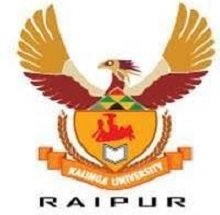
Who should enroll in M.Tech. (Mechanical Engineering) RAWAL INSTITUTE OF ENGINEERING AND TECHNOLOGY?
- You must have a bachelor's degree in engineering or technology in a relevant discipline (such as mechanical engineering or a closely related field) from a recognised university.
- You need to have obtained a minimum of 50% marks in aggregate in your bachelor's degree.
Why Should You Learn This course?
-
High in Demand
Open Source Technology -
Easier entry to market
Huge device market share -
The Huge App Market
Numerous & Variety of Job Opportunities
Hiring Company





What you will learn
- Advanced Machine Design
- Heat and Mass Transfer
- CAD/CAM Applications
- Fluid Mechanics
- Finite Element Analysis (FEA)
- Thermal and Energy Systems
- Industrial Automation
- Robotics & Mechatronics
- Advanced Manufacturing Techniques
- Computational Fluid Dynamics (CFD)
- Engineering Materials and Tribology
- Product Design & Development
- Mechanical Vibrations
- Control Systems
- Mechatronic System Design
- Instrumentation & Measurements
- Renewable Energy Technologies
- Research Methodology & Project Work
Technologies you'll Master

Our M.Tech (Mechanical Engineering) program is designed in alignment with current industry standards to equip students with cutting-edge mechanical and design tools, including: AutoCAD, SolidWorks, ANSYS, MATLAB, CNC Simulation, 3D Printing, Creo, and more....





Project

This project develops a tool to optimize toolpath strategy for CNC machining, reducing cycle time and improving material utilization.

A portable jack system controlled using sensors or mobile apps, used for effortless vehicle lifting—ideal for emergency roadside assistance.

A solar thermal system integrated with sensors and a mobile app to monitor temperature and efficiency in real-time.

A system that collects vibration data from machinery and analyzes it for fault detection and predictive maintenance.

A vehicle safety prototype that uses sensors to detect obstacles and automatically applies brakes to prevent collisions.

A redesigned air cooler that utilizes waste heat recovery to increase efficiency and lower energy consumption.
Program outcomes
- Design Expertise.
- Research Skills.
- Industry Readiness.
- Simulation Tools.
- Automation Skills.

















 Info
Info 0 Topic
0 Topic